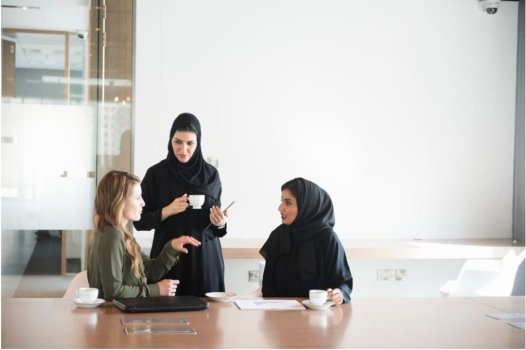Arab-Americans are at the forefront of realizing technology's most significant potential, providing positive changes to America and the Arab World.
However, like many other hyphenated "x-Americans," their capacity to accommodate two distinct worlds can be exhausting, primarily as perceptions sway with every negative news story feeding us a "them" versus a "us" mentality.
Raising money from investors is a challenging task for a startup in general, but even more so for many minority groups, including non-binary Arab and North African founders.
Unfortunately, post 9/11, many Arab founders were forced to fight for notoriety outside of the stereotyped Hollywood tropes. However, what you don't hear about in mainstream media, is that Arabs contribute to at least 3.4% of the total patents in the United States while only representing .3% of the total population.
As Gen Z becomes more and more progressive about race relations and the Middle East, the trend must keep growing in the tech sector. Iraqi-American Deena Shakir, at Lux Capital, recently led the round of the first women's health unicorn in the United States, Maven.
Continue reading: https://www.forbes.com/sites/soulaimagourani/2022/01/19/how-arab-women-are-making-waves-in-tech/?sh=798526f24114
However, like many other hyphenated "x-Americans," their capacity to accommodate two distinct worlds can be exhausting, primarily as perceptions sway with every negative news story feeding us a "them" versus a "us" mentality.
Raising money from investors is a challenging task for a startup in general, but even more so for many minority groups, including non-binary Arab and North African founders.
Unfortunately, post 9/11, many Arab founders were forced to fight for notoriety outside of the stereotyped Hollywood tropes. However, what you don't hear about in mainstream media, is that Arabs contribute to at least 3.4% of the total patents in the United States while only representing .3% of the total population.
As Gen Z becomes more and more progressive about race relations and the Middle East, the trend must keep growing in the tech sector. Iraqi-American Deena Shakir, at Lux Capital, recently led the round of the first women's health unicorn in the United States, Maven.
Continue reading: https://www.forbes.com/sites/soulaimagourani/2022/01/19/how-arab-women-are-making-waves-in-tech/?sh=798526f24114

